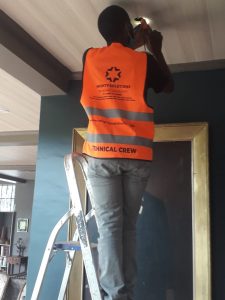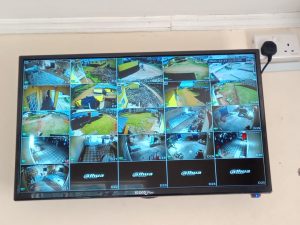REASONS FOR CCTV INSTALLATION IN KENYA
Over the years CCTV cameras have evolved to be used in different areas from buildings to private offices, and residential homes to country clubs, strategically placed security cameras are used to view events as they occur, as well as to capture footage for monitoring at a later time. Some common uses for CCTV technology include:
- Home security

Though security cameras don’t do anything to physically prevent crime from happening, homeowners today use them to deter criminals from trespassing and to keep their families safe. This can clearly be unsaid testimony of current events that are happening in Kenya. Most burglary suspects are apprehended with the help of CCTV installation in Kenya.
Most women in Kenya prefer taking an 8-5 job with that said, another residential use for CCTV technology is as a “nanny-cam.” Nanny-cam recordings serve as great resources for those who are curious as to how their household staff spends their time. Parents also use nanny-cams to ensure that their children are left in good hands when they are gone for any length of time
- Business Surveillance

Businesses use CCTV technology for a number of reasons, including as a crime deterrent. Banks, offices, museums, restaurants, retail stores, and other businesses are a hotbed for crime, as most always have cash on hand. To protect the money, business owners strategically place security cameras at registers, in back offices, near safes, and at the entrances. Retail stores use security cameras on the sales floors to deter shoplifting and vandalism.
There are two types of CCTV cameras ;
Analog Security Systems
Analog surveillance systems work by connecting your standard analog camera to a digital video recorder (DVR) via transmission cables. The DVR receives the video from the camera, compresses it, and then stores it on a hard drive for either live viewing or later viewing. This setup also allows you to transport the video over the internet for remote viewing. With the analog system, the DVR is charged with compressing, converting, storing, and streaming the video. It is also responsible for controlling all of the camera’s built-in capabilities, including motion detection, schedules, notifications, alarm inputs, and more.
IP Security Systems
IP systems are a little more involved, and as such, are a more expensive option. In an IP configuration, the camera takes over the responsibility of the DVR, including compressing, converting, and streaming the video over an internet connection. With this setup, a DVR is not necessary; rather, the video can be streamed directly to a personal computer or an NVR (network video recorder).

All these have led us to the question; why install CCTV cameras in Kenya? Not only is it affordable (from Ksh 25,000) but also, it provides safety solutions for property owners, law enforcement, and business owners. CCTV has proven to be one of the most accessible loss prevention and safety monitoring technologies